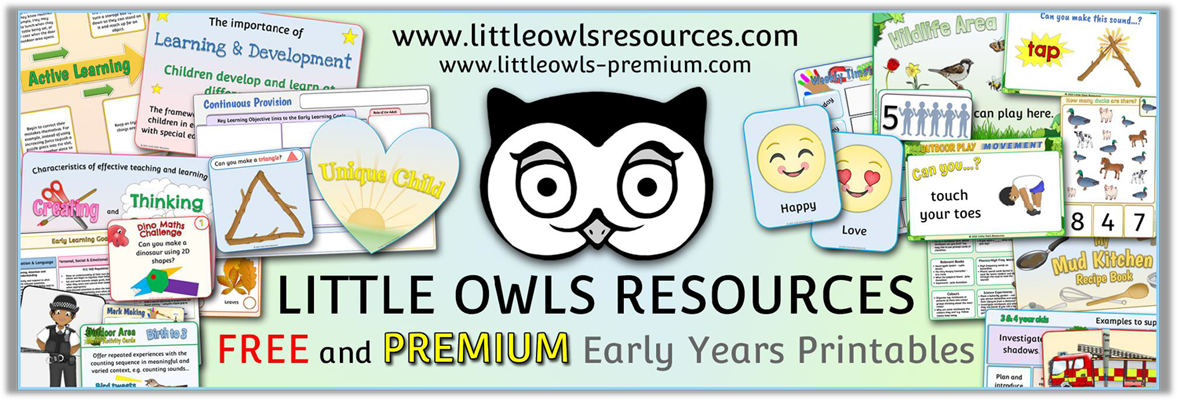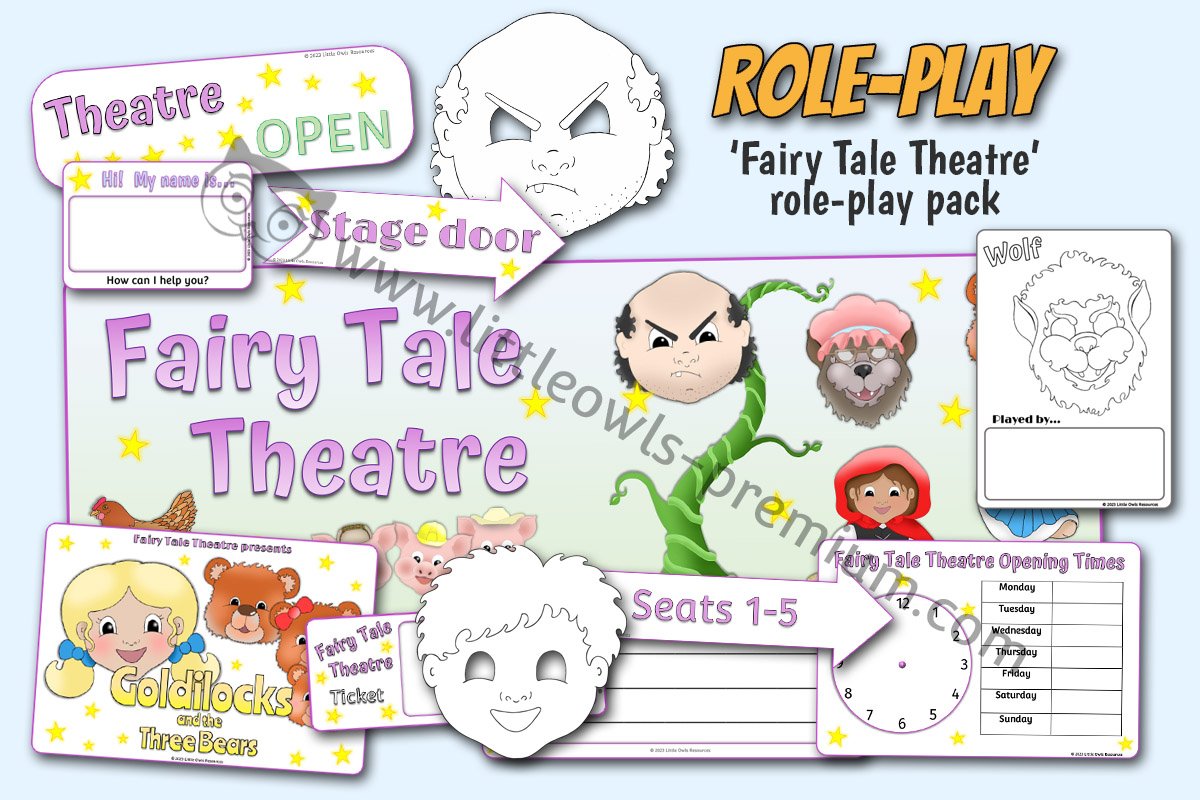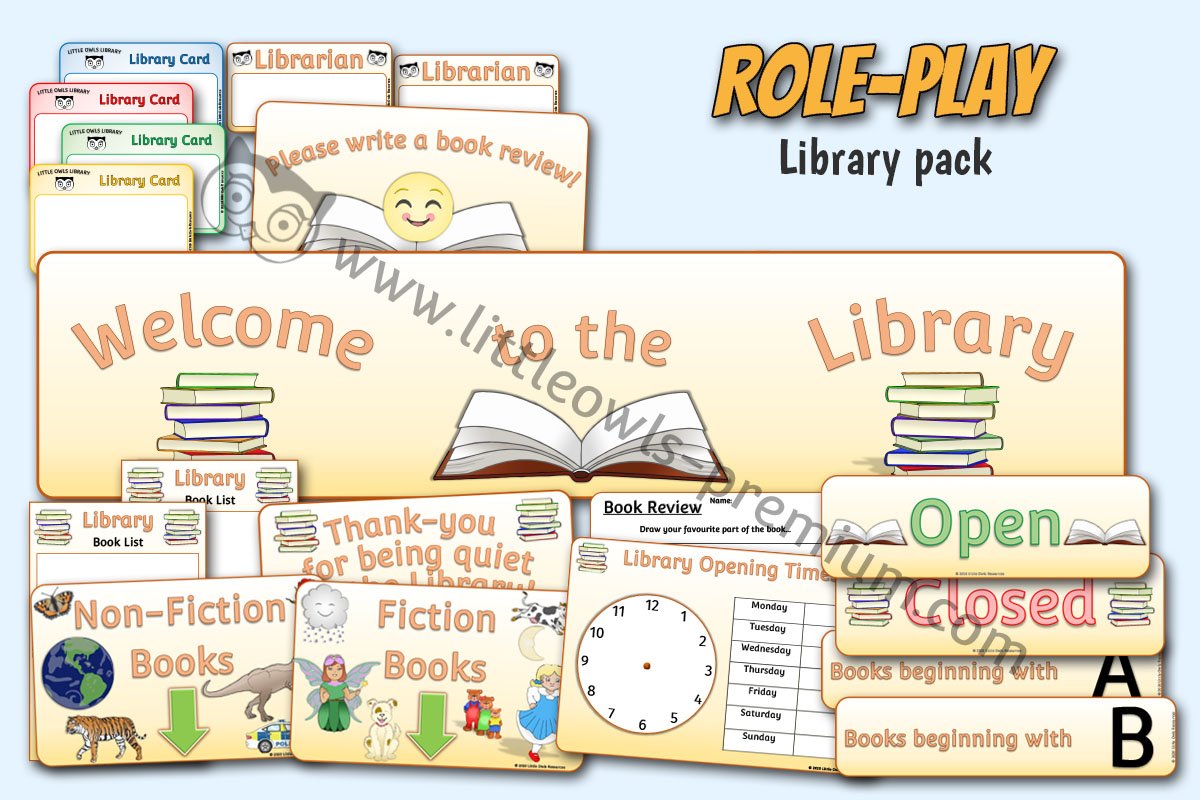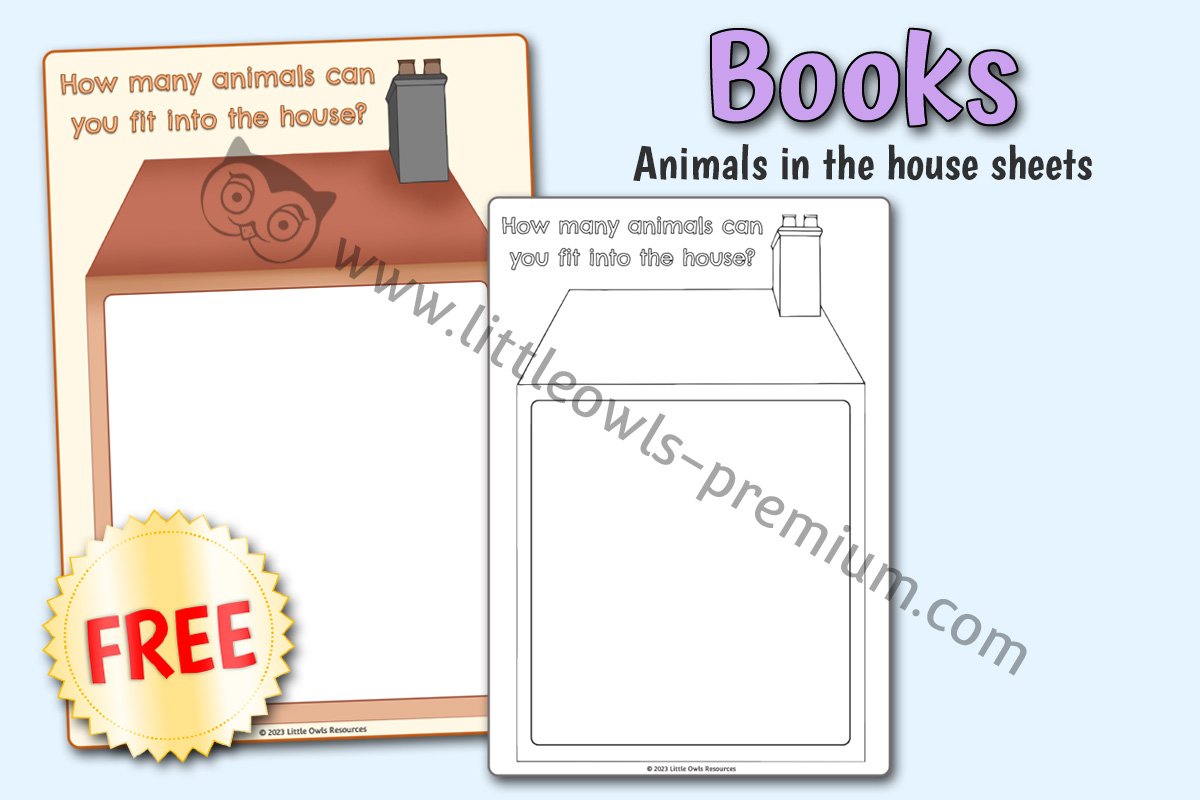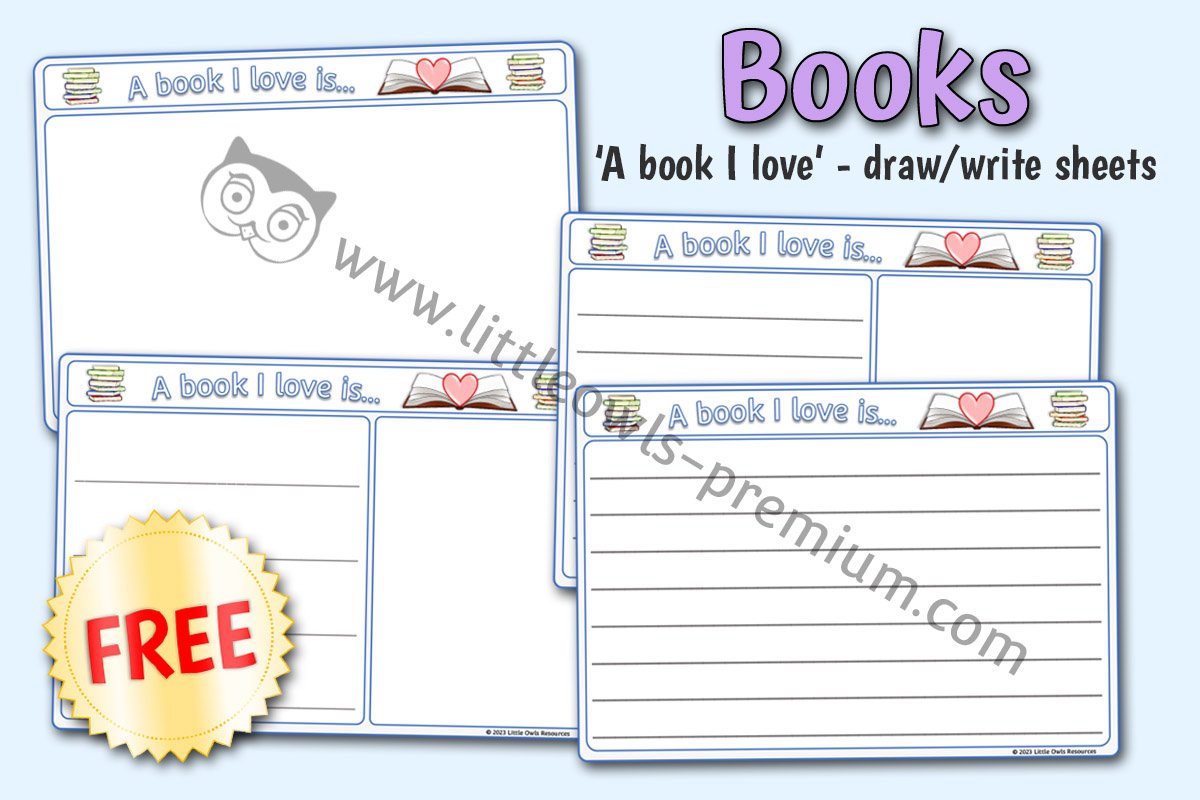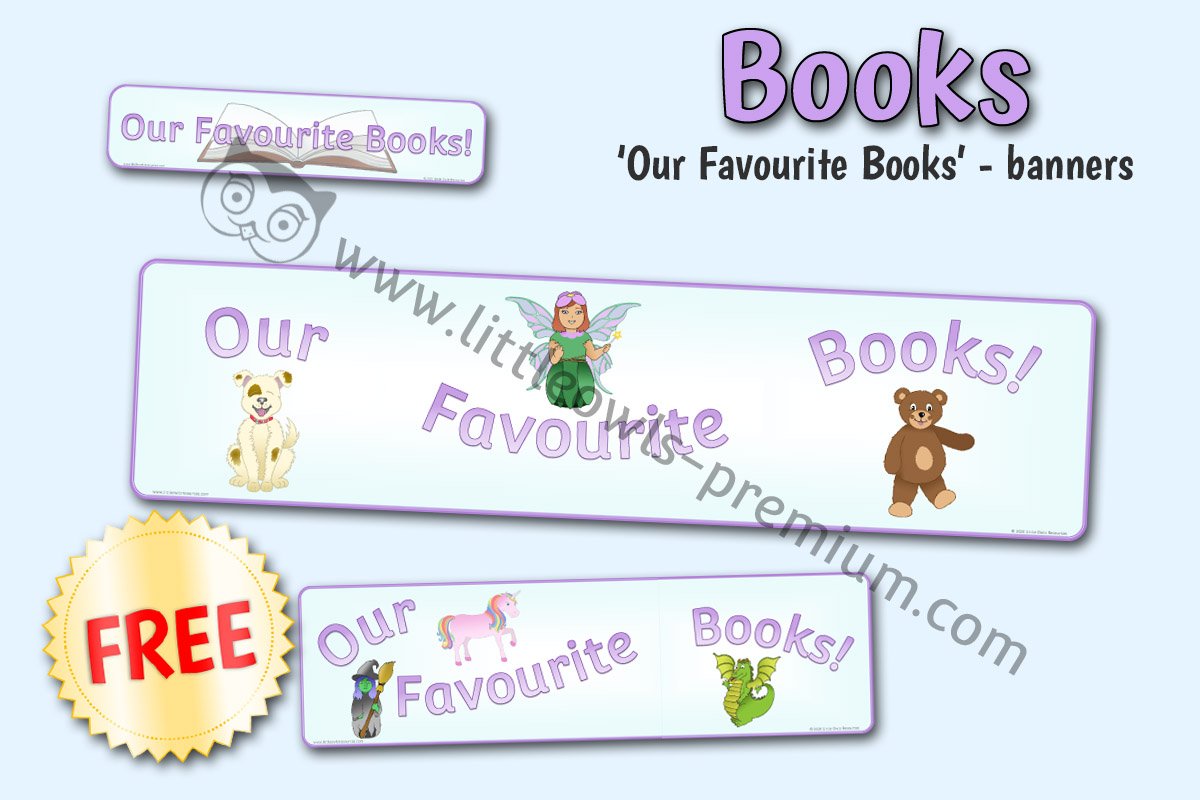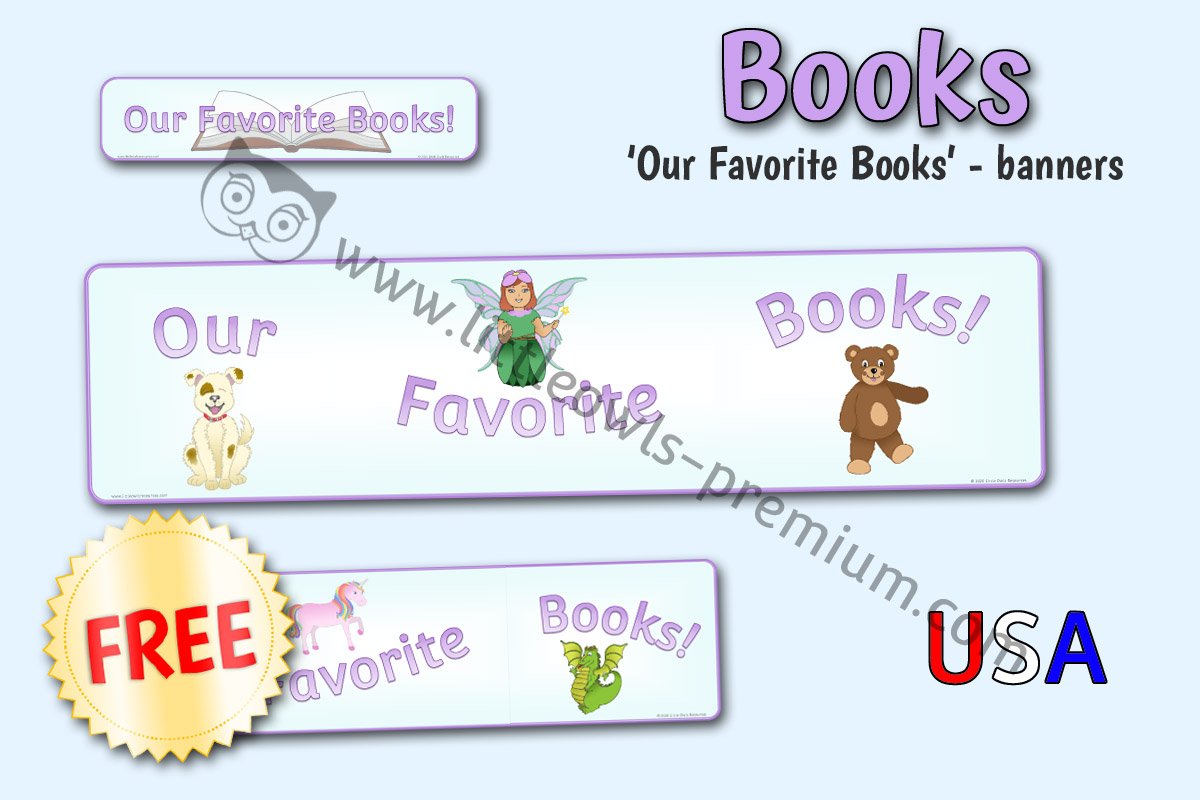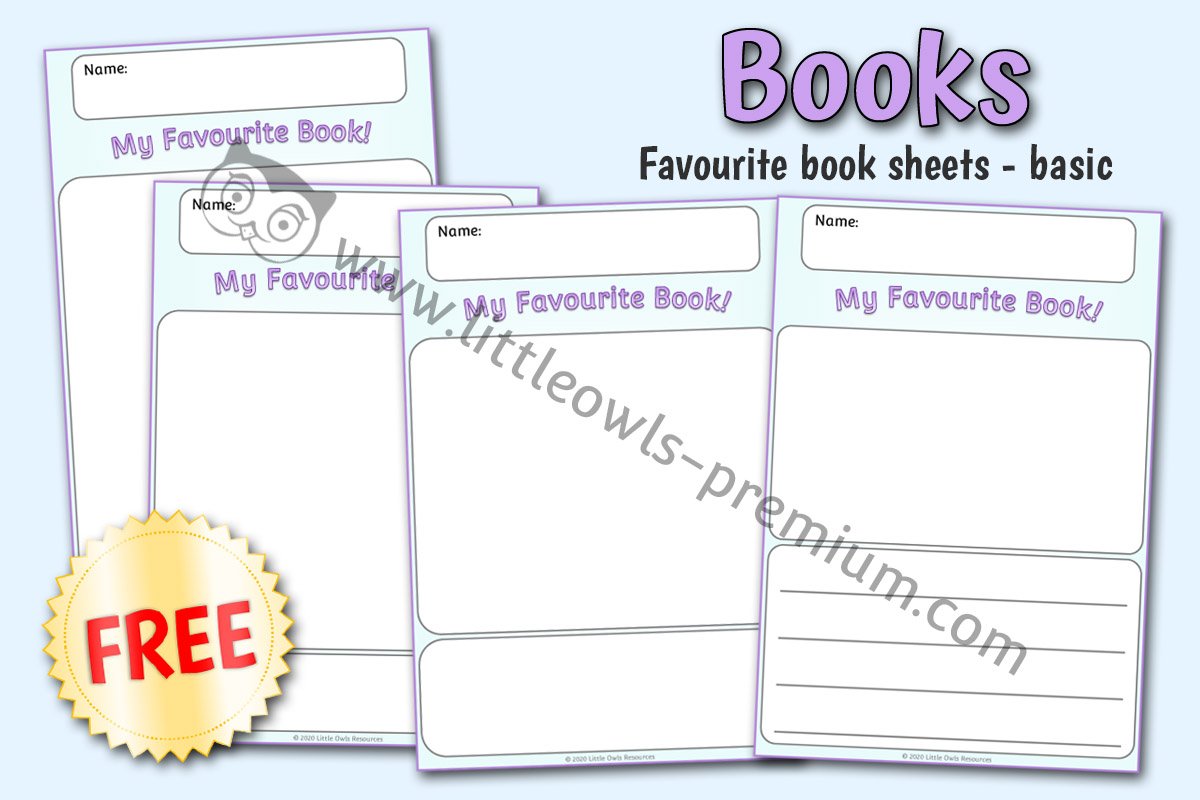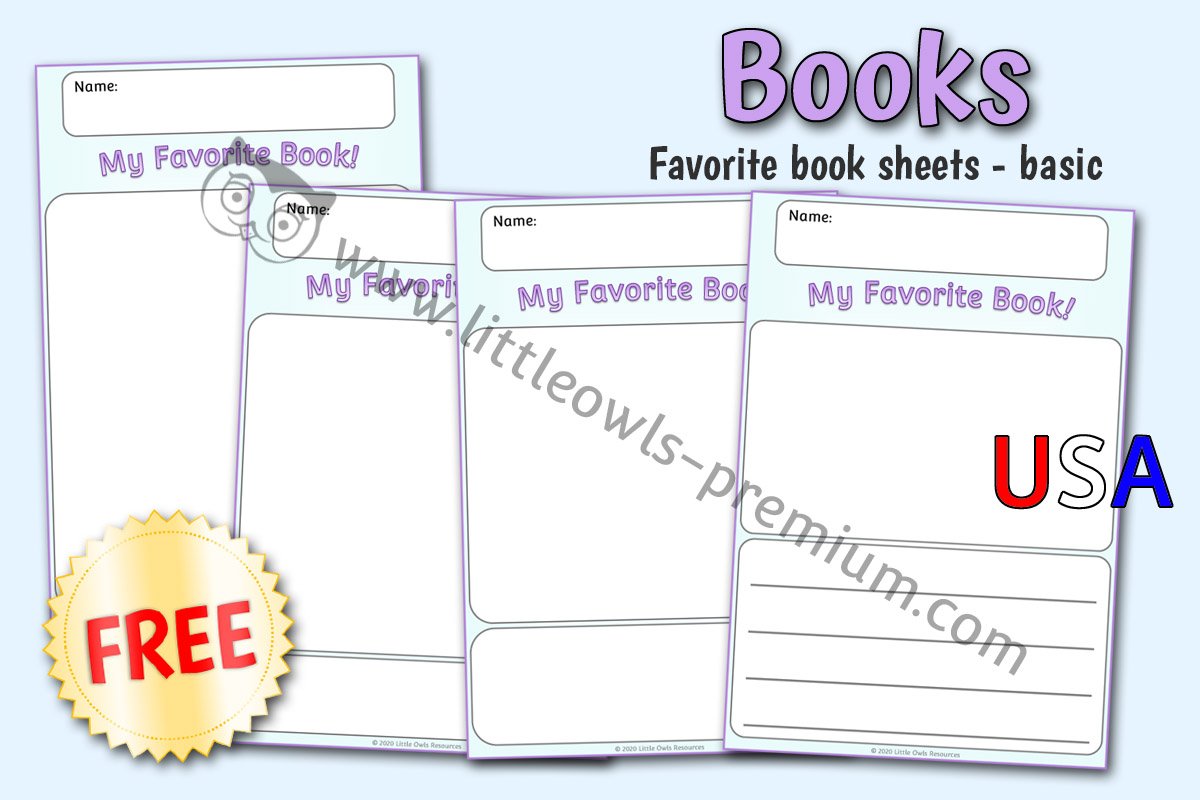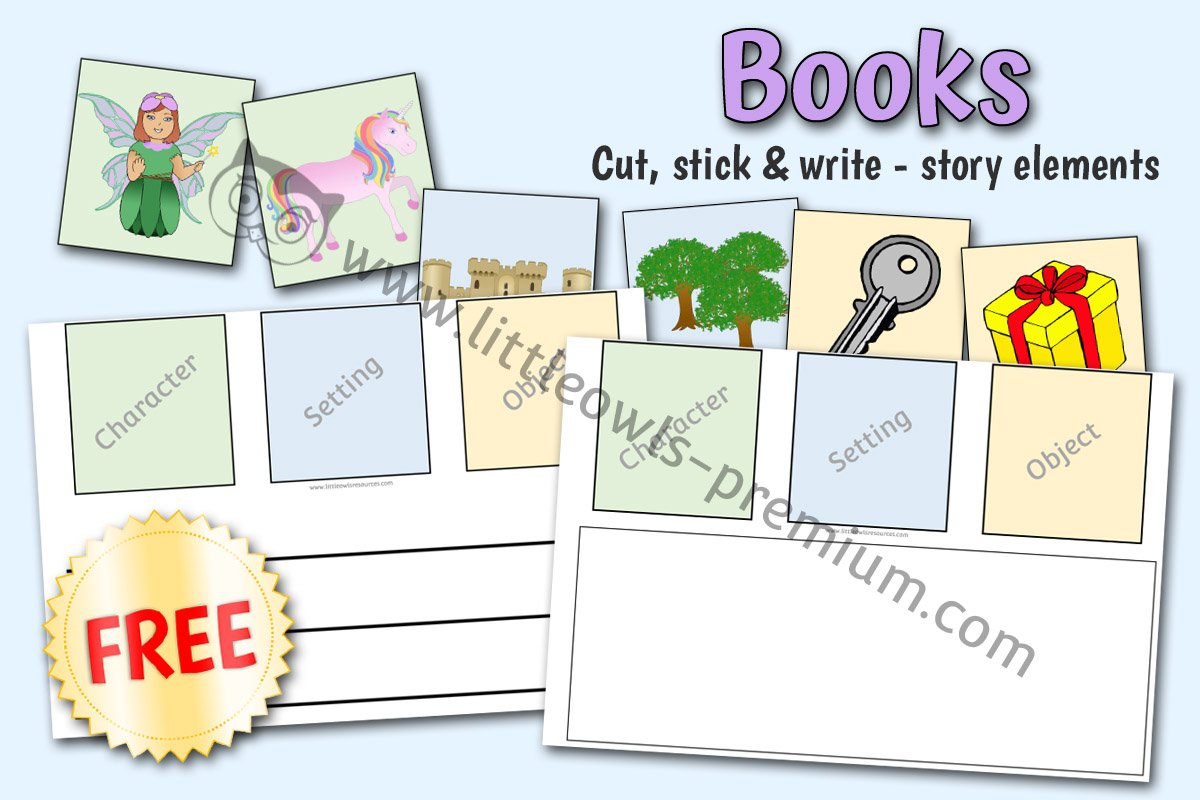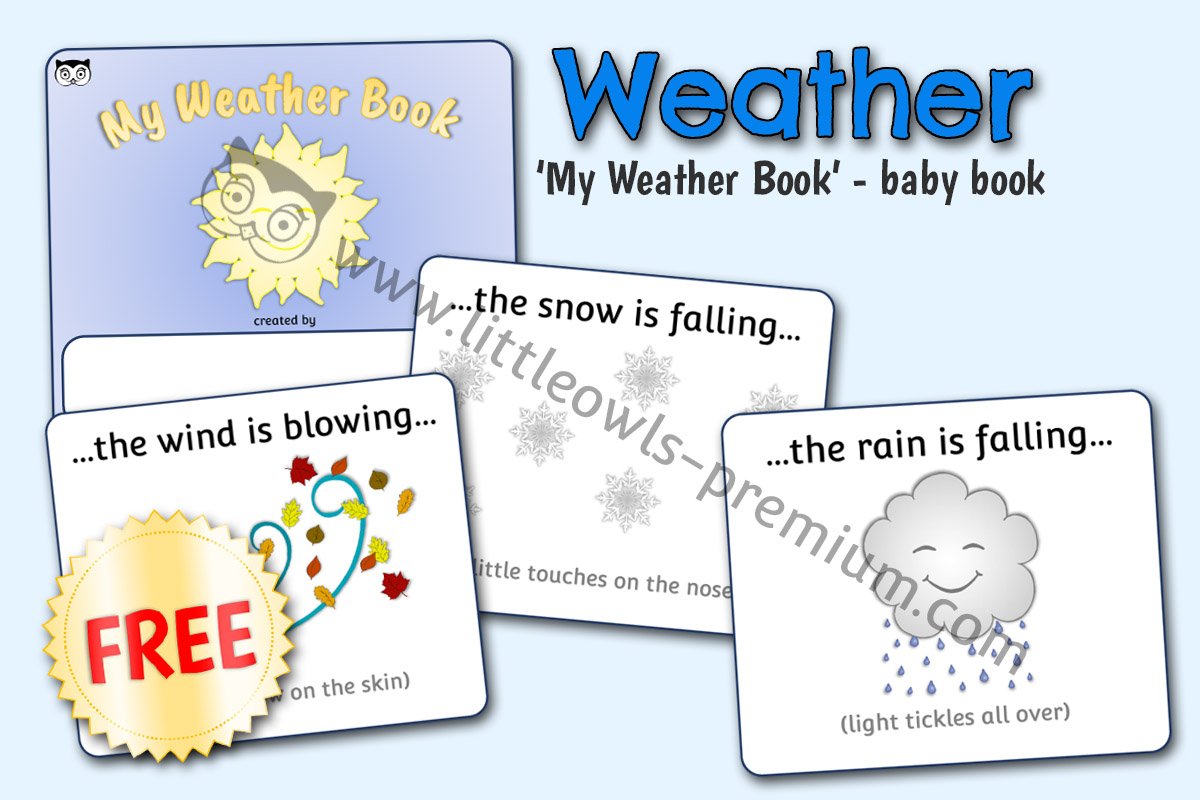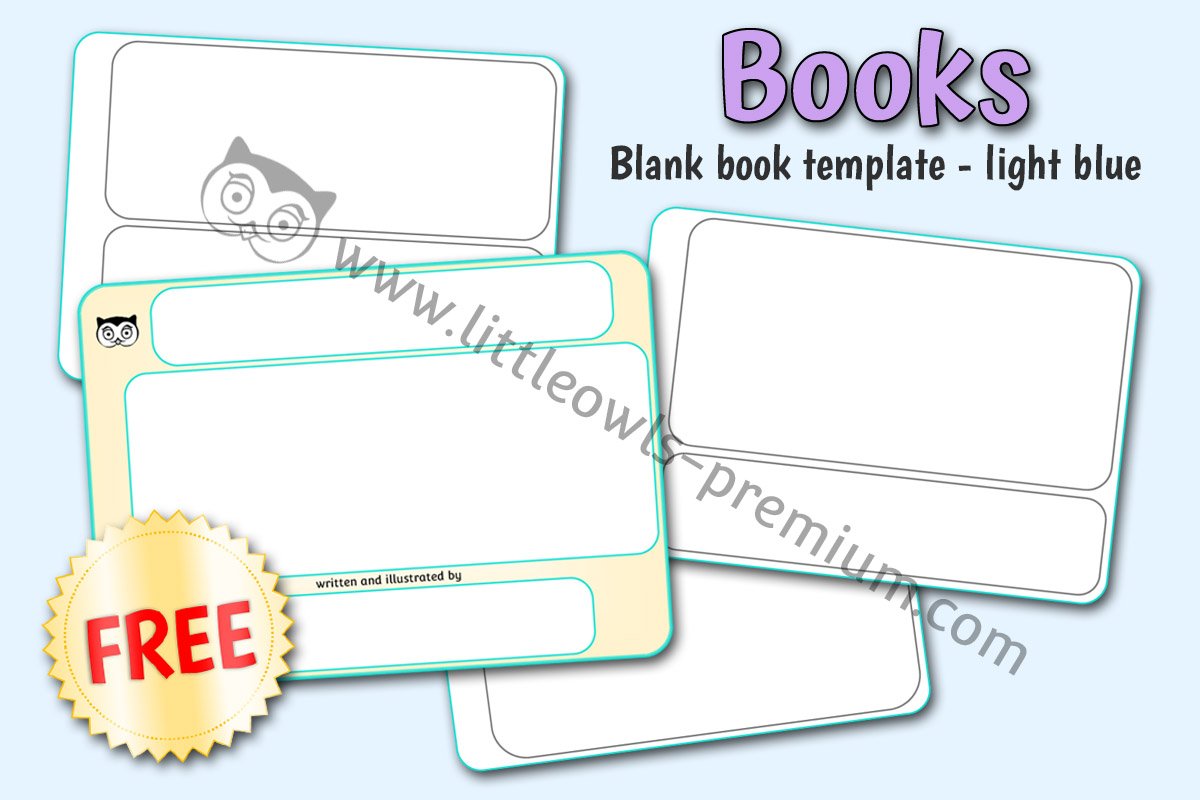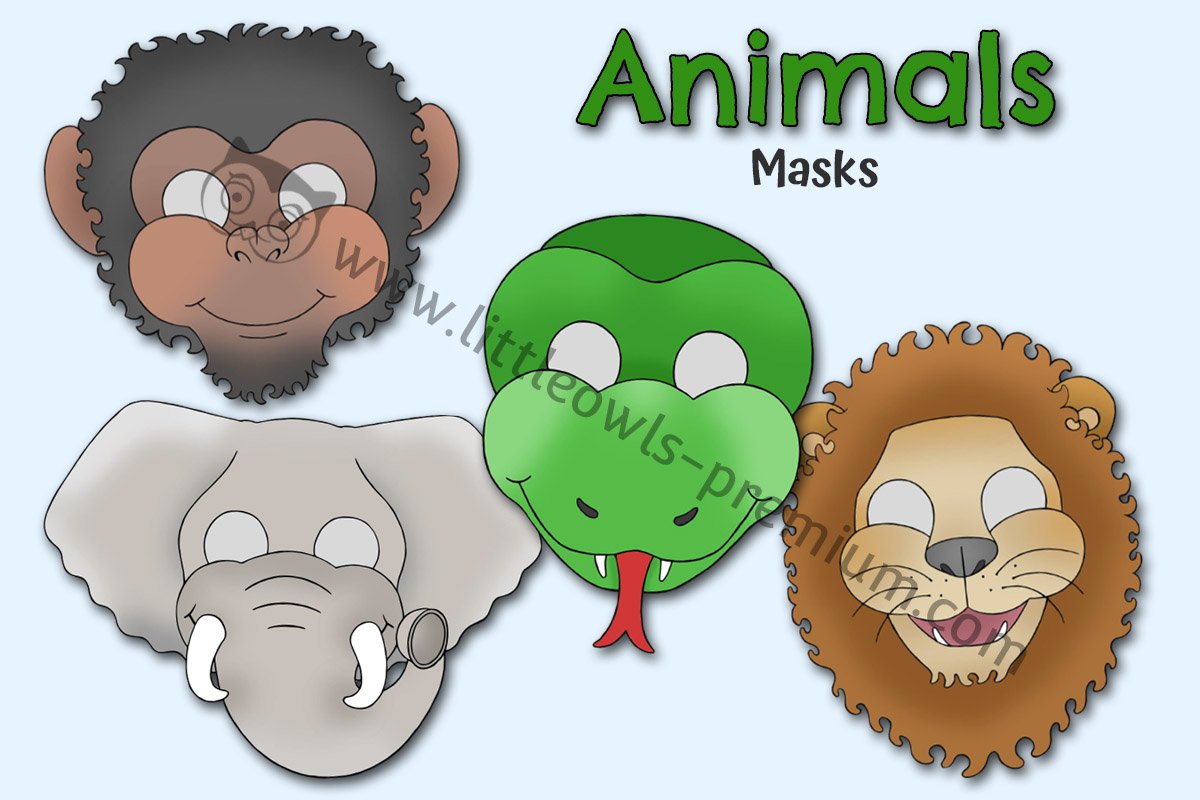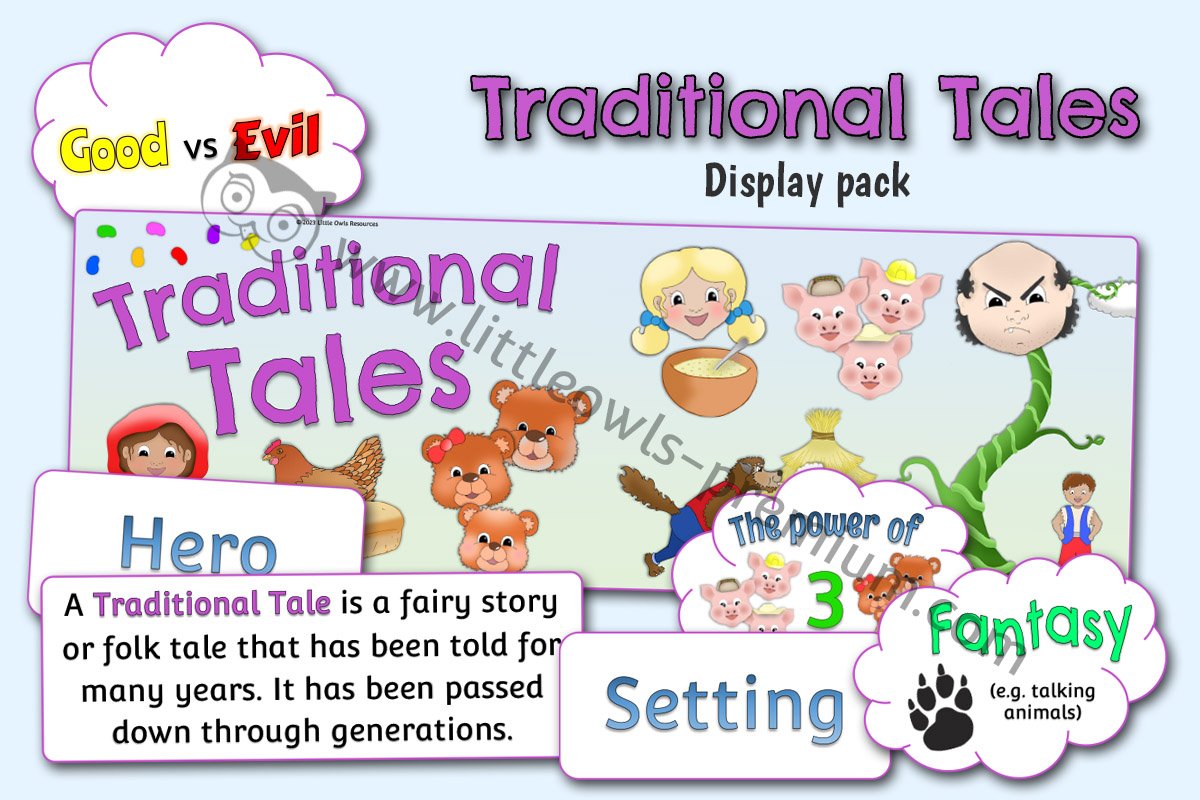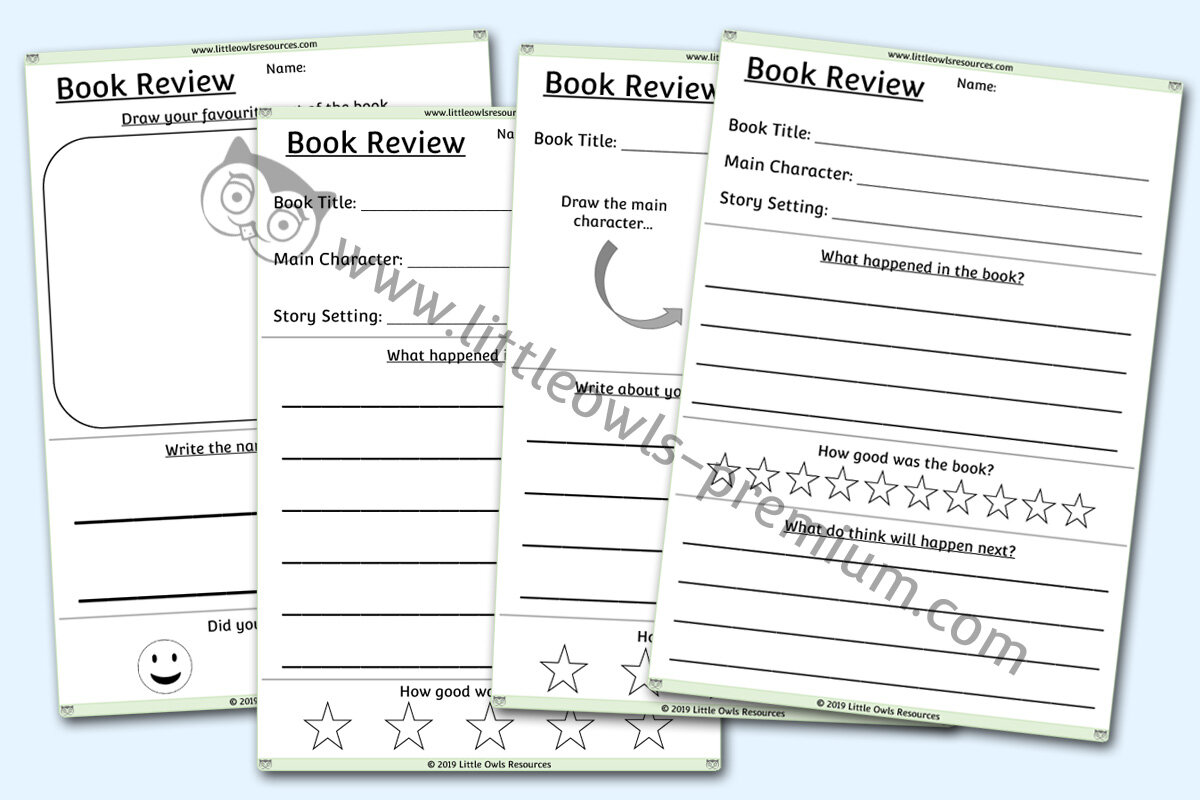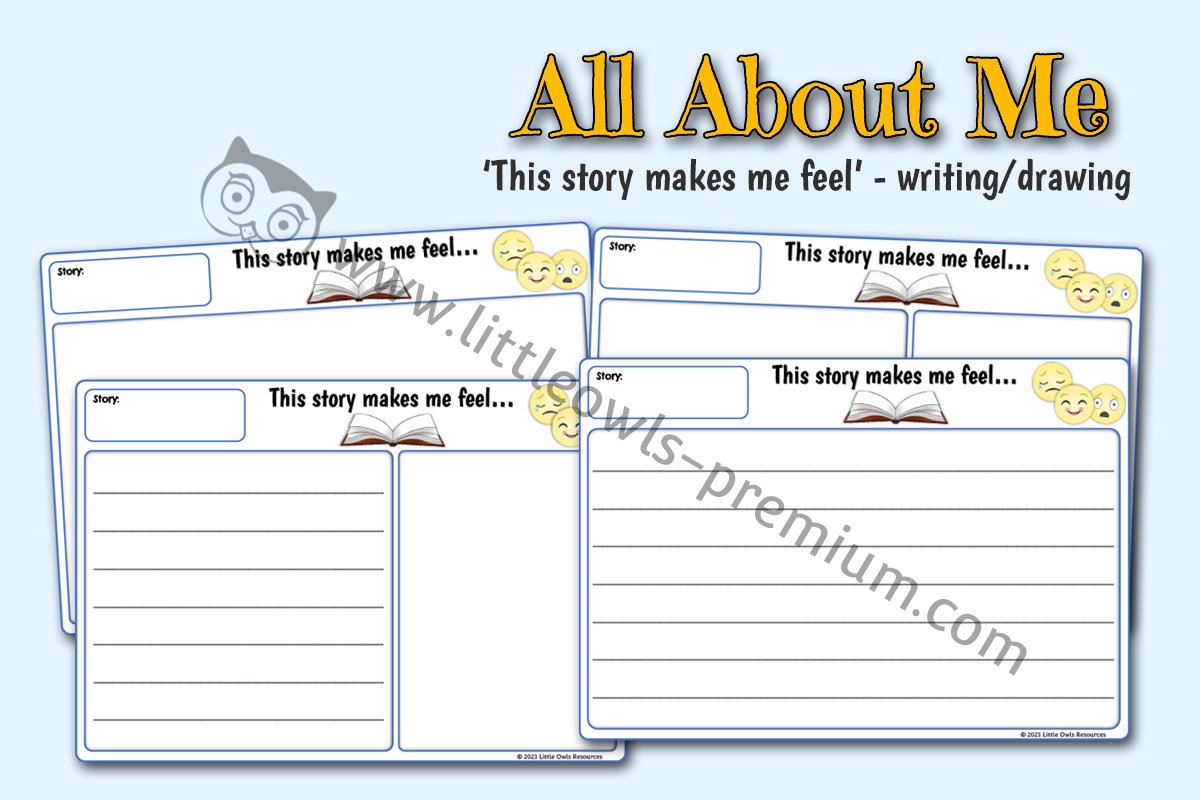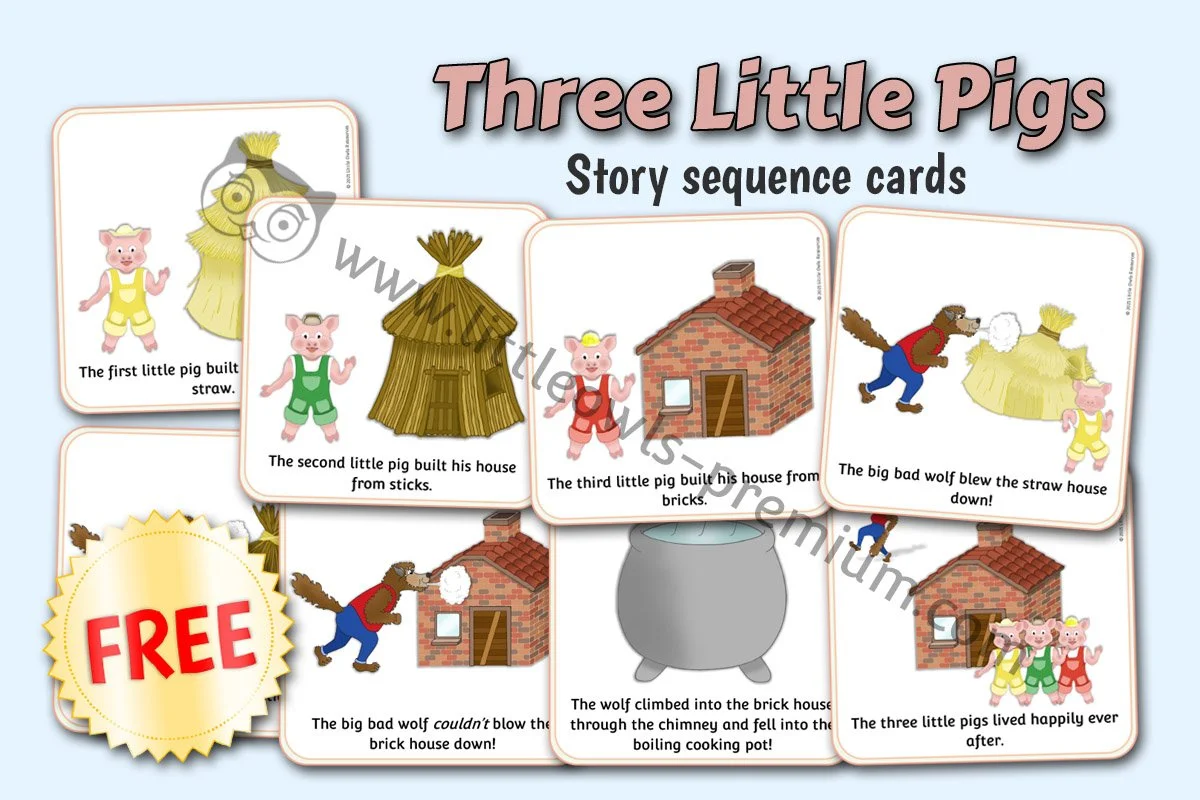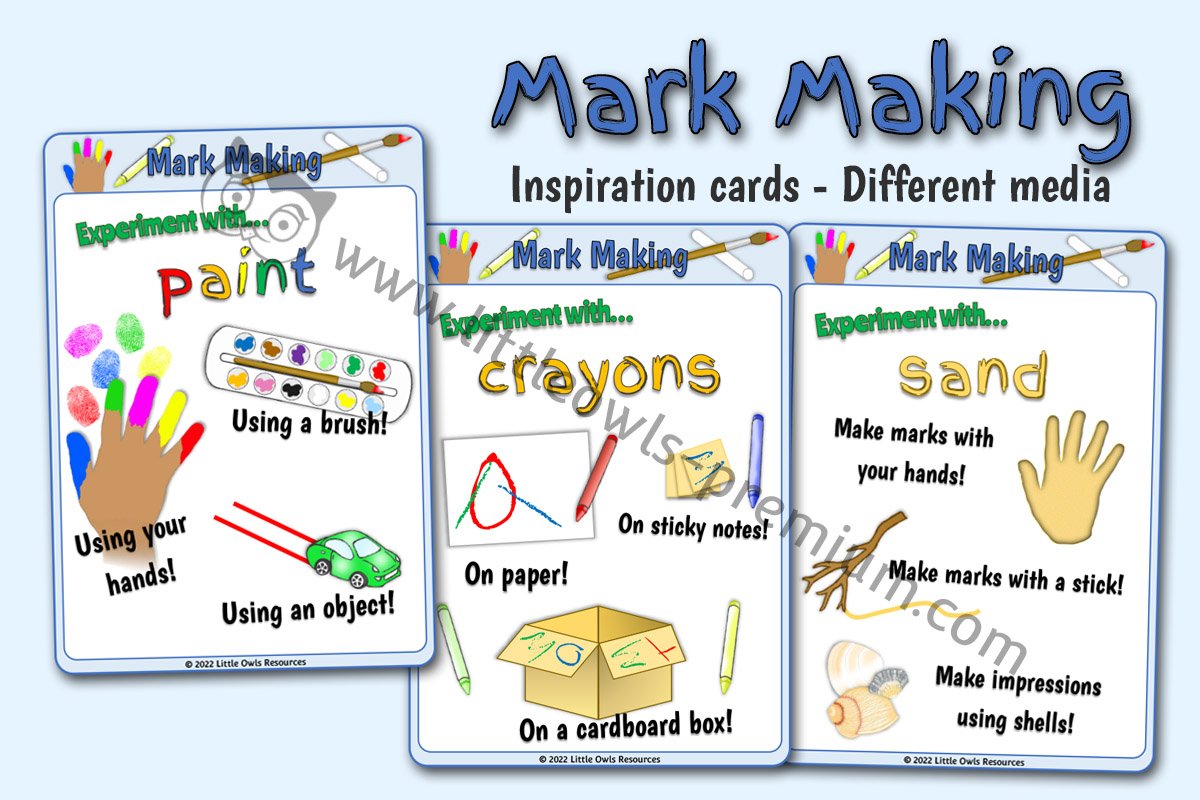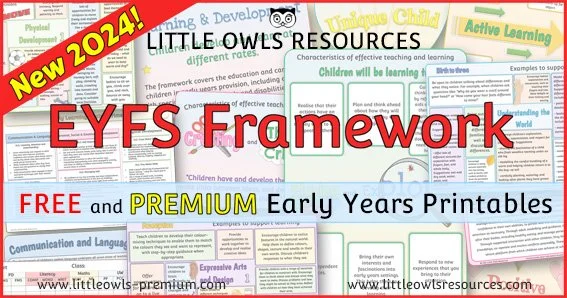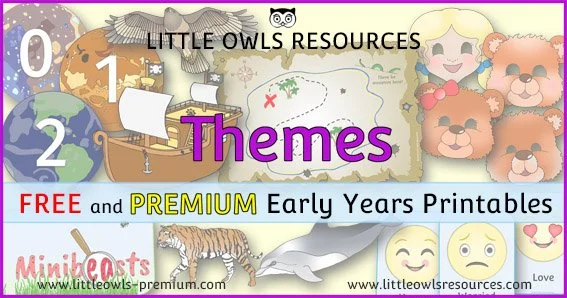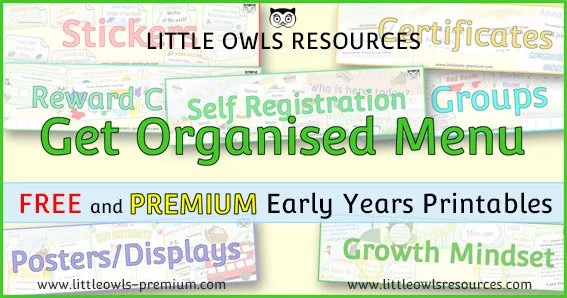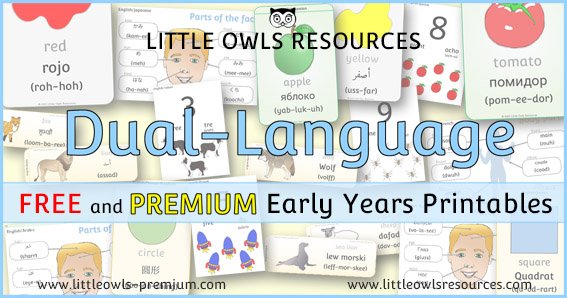books and Storytelling - EYFS/Early Years activities, Displays and ideas
On this page we have compiled all of the resources from our website (‘Little Owls Resources’) which you may find useful for learning about ‘Books and Storytelling’ with your EYFS and KS1 children.
SECTIONS ON THIS PAGE:
Featured Role Play Packs
(Free) Book resources
Masks - Great for developing young children’s interest in books and characters through role-play!
General ‘Traditional Fairy Tales’ topic resources
Specific Traditional Fairy Tales
(Free) ‘Traditional Tales’ resources
Display Lettering (Books)
Related Special Dates - World Book Day - National Storytelling Week (Scroll down to find out more)
Related resources and pages you may be interested in - Animals - Dinosaurs - Fairies - People Who Help Us - Pirates - Teddy Bears’ Picnic - Literacy - Letters and Sounds/Phonics
More March Awareness Dates and Festivals
Role-Play Packs
If you are not a member already, become a ‘Free Access’ member here. This will give you access to resources within the ‘Free Sample Resources’ sections at the top of most pages and ‘Special Dates Calendars’. Some whole topics are even free! Find out more about all of our membership options here. If you are already a member… thank-you! x
Please note that both Editable (docx file) and non-editable (pdf file) versions are available for the following resources. (Editable files require Microsoft Word to work at optimum level and Non-Editable files require a pdf viewer.)
Click on the thumbnail images below for further details…
FREE ‘Books’ Printable REsources | Early Years
Masks
- Great for developing young children’s interest in books and characters through role-play!
General Traditional Tales Resources, Story Maps & Book Reviews
Specific TRADITIONAL Fairy TALES
Visit the following pages to find story sequence activities, banners, word mats, word cards, masks, drawing/writing/mark making sheets, snap cards, lollipop puppets, activity movement challenges, colouring sheets, illustration activities, ‘What happens next?’ prompts, daily weather calendars, planning and much more!
In addition, at the top of each page you will find a ‘Free Sample Resources’ section! We hope you find something useful! 😊
(FREE) ‘TRADITIONAL TALE’ RESOURCES
Display Lettering
Related Special Dates | you may wish to explore with your children
The following is a list of awareness dates and events that may be of interest to you when covering the themes on this page. Each special date section below contains a brief description of the event, who started it and why, some ideas for exploring it with your children and a link to the official website of the awareness day or the primary organisation behind it where this is available. [Please note: external links are provided for informational purposes and we are not responsible for the content of external sites.]
World Book Day
A Celebration of Reading for Pleasure!
In the UK, World Book Day is an exciting charity event held annually on the first Thursday in March. It's a day dedicated to inspiring a lifelong love of reading in children and young people, making books accessible to everyone, and celebrating the wonderful world of authors and illustrators.
The core educational thrust behind World Book Day is to foster "reading for pleasure." Research consistently shows that reading for enjoyment is the single biggest indicator of a child's future success, impacting everything from vocabulary and academic attainment across all subjects to empathy and mental well-being. World Book Day aims to shift the perception of reading from a chore to a joyous activity, empowering children to choose what they want to read and discover the fun it brings.
A key part of the celebration is that every child in full-time education in the UK and Ireland receives a £1 book token. This token can be exchanged for a specially produced World Book Day book or used as a discount on any full-priced book. For many children, this provides their very first opportunity to own a book.
Activities for EYFS and KS1 Practitioners and Parents:
Here are some engaging ideas to celebrate World Book Day and encourage reading for pleasure with young children:
Dress Up as Book Characters: This is a classic for a reason! Encourage children to come to school or nursery dressed as their favourite characters. This sparks excitement and allows for imaginative play and discussion about characters and their stories.
"Drop Everything and Read" (DEAR) Time: Set aside a specific time (or even multiple times throughout the day) where everyone, including adults, stops what they are doing and reads a book of their choice for a few minutes. This models reading for pleasure and creates a calm, shared experience.
Book Swaps: Organise a "book swap" where children bring in a book they've enjoyed and exchange it for a new one. This is a fantastic way to introduce children to different books and authors without cost.
Story Sacks/Bags: Create a "story sack" for a favourite book. Fill a bag with props and objects related to the story. Children can pull out items and retell the story, encouraging language development and comprehension. For example, for "The Very Hungry Caterpillar," include toy fruits and a butterfly.
Create Your Own Storybooks/Bookmarks: Provide children with blank paper, drawing materials, and craft supplies to create their own simple storybooks. They can draw pictures, add stickers, and even make up their own words or squiggles to represent writing. Alternatively, they can design and decorate their own bookmarks, perhaps featuring their favourite characters.
Puppet Shows or Acting Out Stories: Encourage children to act out scenes from their favourite books using puppets or by dressing up. This is excellent for developing communication and language skills, understanding characters, and fostering creativity.
Author/Illustrator Focus: Pick a favourite author or illustrator and explore their works. You could read several of their books, look at their different illustration styles, or even try to draw a character in their style.
"Mystery Book" Selection: Wrap books in plain paper and write a few intriguing clues or a "dating profile" style description on the front. Children can choose a book based on the description, adding an element of surprise and encouraging them to explore new stories.
Visit the Library (or have a 'Library' Corner): Emphasise the importance of libraries as places to discover new books. If a trip isn't possible, create a special "library corner" in the classroom or at home with a wide range of books for children to browse and borrow.
Official World Book Day Website: For more information, resources, and details about World Book Day in the UK, please visit their official website: www.worldbookday.com
National Storytelling Week
National Storytelling Week is an annual celebration that takes place in the UK from the last Saturday in January to the first Saturday in February. Organised by the Society for Storytelling, this week is dedicated to promoting the power and joy of oral storytelling. It encourages people of all ages to share stories, listen to stories, and appreciate the ancient art of narrative.
The main educational thrust of National Storytelling Week for EYFS and KS1 children is to cultivate a love of stories in all their forms, enhancing listening skills, fostering imagination, and developing language and communication abilities. It emphasises that stories aren't just found in books; they can be told, heard, acted out, and created by anyone. It builds confidence in children to express themselves verbally, understand narrative structures, and connect with different cultures and experiences through the magic of a shared tale.
Activities for EYFS and KS1 Practitioners and Parents:
Here are some engaging and age-appropriate activities to celebrate National Storytelling Week and encourage the love of stories with young children:
Storytelling Circle: Create a cosy space (perhaps with cushions and soft lighting) where everyone can sit in a circle. Encourage children to share their own short stories, real-life experiences, or retell a favourite tale. Adults can model by sharing first.
"Tell Me a Story" Jar/Box: Write or draw prompts on slips of paper (e.g., "A brave mouse," "A magic key," "A talking tree," "A journey to the moon"). Children pick a prompt and then tell a short, spontaneous story based on it.
Story Sacks/Bags: Create a "story sack" for a favourite book or a traditional tale (e.g., "The Three Little Pigs"). Fill a bag with props, puppets, or objects related to the story. Children can use these items to retell the story in their own words.
Puppet Show Fun: Provide hand puppets, finger puppets, or even stick puppets (made from pictures glued onto craft sticks) and encourage children to put on their own puppet shows based on known stories or their own invented narratives.
"Pass the Story" Game: Start a simple story with one sentence (e.g., "Once upon a time, there was a little bear who loved honey."). Each person in the circle adds the next sentence to continue the story. This encourages listening and creative thinking.
Draw Your Own Story: Encourage children to draw a sequence of pictures to tell their own story, without necessarily adding words. They can then "tell" their story by explaining what's happening in each picture.
"Sounds of a Story": When telling a story, incorporate sounds. For example, use a shaker for rain, tap a drum for footsteps, or make animal noises. Encourage children to join in with sound effects.
Shadow Puppet Stories: Use a simple light source (like a torch) and cut-out shapes (or even just hands) to create shadow puppets on a wall or sheet. Tell a story using the shadows.
Listen to Oral Stories: Find and play audio stories or storytelling podcasts for children. This exposes them to different voices, accents, and ways of telling stories, fostering strong listening skills.
Story Mapping: After hearing a story, work together to create a simple "story map" – drawing key characters, settings, and events in sequence to help children remember and retell the narrative.
Official National Storytelling Week Website: For more information, resources, and to find out about events happening during National Storytelling Week, please visit the official website of the Society for Storytelling: www.sfs.org.uk (Look for the National Storytelling Week section).
